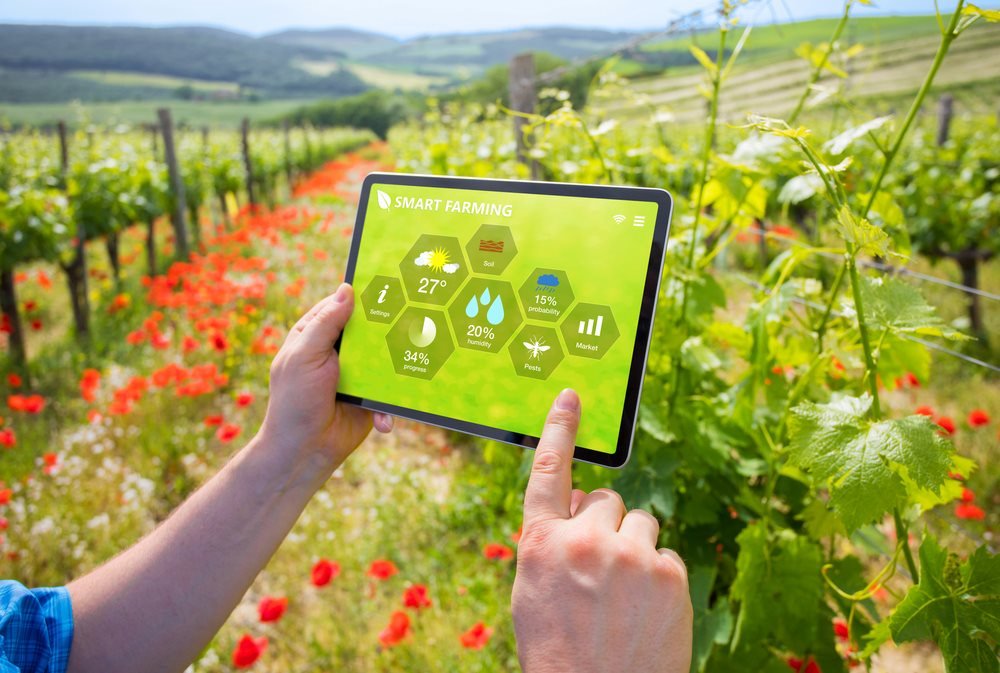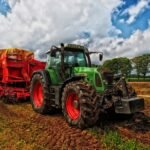Smart Farming: How Technology Can Enhance Agricultural Operations

In the era of rapid technological advancements, agriculture is undergoing a transformative shift towards smart farming. This article explores the integration of technology into agricultural operations, highlighting the myriad ways in which smart farming enhances efficiency, productivity, and sustainability in the modern agricultural landscape.
**1. Precision Agriculture Through IoT for Smart Farming
The Internet of Things (IoT) plays a pivotal role in precision agriculture, enabling real-time monitoring and data collection. Sensors placed in fields gather information on soil moisture, temperature, and crop health. This data is then analyzed to make informed decisions about irrigation, fertilization, and pest control, optimizing resource use and improving overall crop yields.
**2. Automated Machinery and Robotics for Smart Farming
Smart farming introduces automated machinery and robotics to streamline labor-intensive tasks. Autonomous tractors equipped with GPS technology navigate fields for precise planting and harvesting. Drones offer aerial views for crop monitoring and surveillance. The integration of robotics enhances efficiency, reduces labor costs, and minimizes the environmental impact of traditional farming practices.
**3. Data Analytics and Decision Support Systems for Smart Farming
Data analytics tools process vast amounts of agricultural data, providing valuable insights for decision-making. Farmers can analyze historical trends, predict crop outcomes, and optimize resource allocation. Decision support systems powered by artificial intelligence contribute to informed and data-driven choices, ensuring that agricultural practices are tailored for maximum efficiency and sustainability.
**4. Smart Irrigation Systems
Smart irrigation systems utilize real-time data to optimize water usage. Soil moisture sensors, weather forecasts, and automated controls work in tandem to deliver precise amounts of water to crops. This not only conserves water but also prevents over-irrigation, reducing the risk of waterlogged soils and promoting overall water efficiency in agriculture.
**5. Satellite Imaging for Crop Monitoring
Satellite imaging technology provides farmers with a comprehensive view of their fields. These high-resolution images help monitor crop health, detect early signs of diseases or nutrient deficiencies, and assess overall vegetation vigor. Satellite data empowers farmers to implement timely interventions, ensuring healthier and more productive crops.
**6. Blockchain for Supply Chain Transparency
Blockchain technology enhances transparency and traceability in the agricultural supply chain. From tracking the origin of produce to monitoring transportation and storage conditions, blockchain ensures that consumers and stakeholders have access to accurate and verifiable information. This fosters trust, reduces food fraud, and promotes a more accountable and sustainable supply chain.
**7. Smart Greenhouses for Controlled Environments
Smart greenhouses leverage technology to create controlled environments for optimal crop growth. Automated climate control systems regulate temperature, humidity, and light conditions. Sensors continuously monitor and adjust these parameters, creating an ideal environment for year-round cultivation. This precision contributes to increased yields and resource efficiency.
**8. Farm Management Software
Farm management software consolidates various aspects of agricultural operations into a centralized platform. From crop planning and inventory management to financial tracking and equipment maintenance, these software solutions streamline administrative tasks. Farmers can make informed decisions, optimize workflows, and enhance overall operational efficiency.
In addition to precision agriculture and automated machinery, smart farming also encompasses advanced data analytics and decision support systems. These technologies empower farmers with valuable insights derived from vast amounts of agricultural data. By analyzing historical trends, predicting crop outcomes, and optimizing resource allocation, farmers can make informed decisions that enhance productivity and sustainability. With the integration of data-driven technologies, smart farming transforms traditional agricultural operations into dynamic and adaptive systems capable of responding to changing environmental conditions and market demands. As we continue to embrace technological innovations, the future of agriculture holds endless possibilities for efficiency, resilience, and environmental stewardship.
Conclusion
Smart farming represents a paradigm shift in agriculture, leveraging technology to address the challenges of a rapidly evolving world. By embracing precision agriculture, automation, data analytics, and innovative technologies, farmers can enhance productivity, reduce environmental impact, and contribute to a more sustainable and resilient future for agriculture. As technology continues to advance, smart farming stands at the forefront of shaping the next generation of agricultural practices.
Recourses
- John Deere – Precision Agriculture Solutions
- FAO – Digital Technologies in Agriculture
- USDA – Precision Agriculture
- AgFunder – AgriTech Market Map
- Agricultural Data Coalition
- PrecisionAg – Technology Solutions for Agriculture
- Farmers Weekly – Smart Farming
- AgriTech Tomorrow – News and Articles on Agricultural Technology
- International Journal of Agricultural and Biological Engineering
- Smart Agriculture Analytics – Whitepapers and Reports
Read More useful articles:
- Smart Farming: How Technology Can Enhance Agricultural Operations
- Natural Pest Control: Eco-Friendly Strategies for Crop Protection
- Soil Quality Enhancement: Strategies for Improved Agricultural Production
- Drip Irrigation Mastery: An Effective Approach to Water Management
- Robotics Technology in Agriculture: The Future of Smart Farming
- Vertical Farming: Efficient Space Utilization for Improved Production
- Impact of Climate Change on Agriculture: Challenges and Solutions
- Building a Sustainable Farm: A Comprehensive Guide
- Digital Marketing Strategies for Agricultural Product Promotion
- Organic Farming: Benefits and Sustainable Development Techniques






